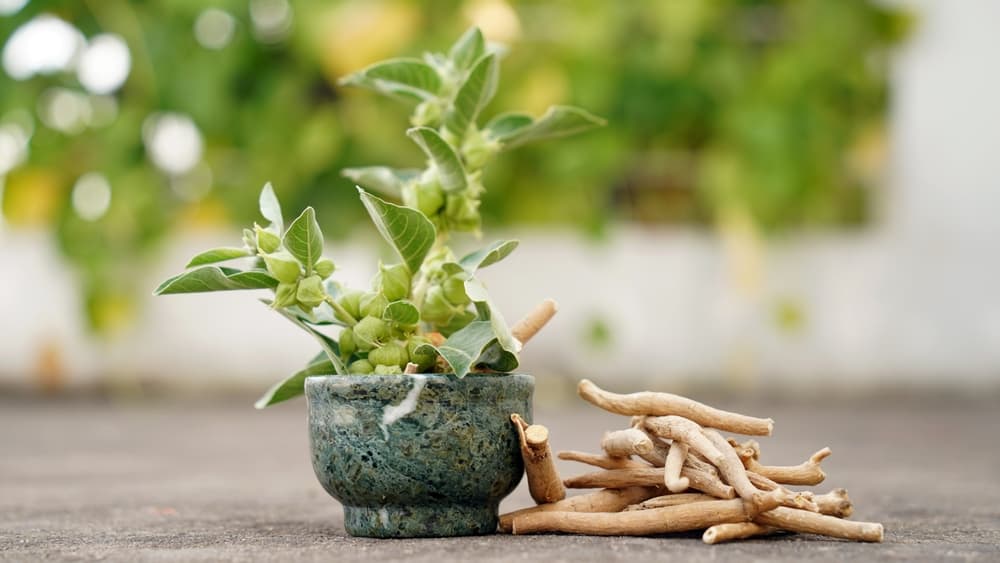
Does Ashwagandha Provide Relief from Anxiety?
2024-07-22
5 min read
Do you find yourself reaching for snacks late at night, even when you're not hungry? You're not alone. Many of us struggle with nighttime cravings that can sabotage our efforts to maintain a healthy diet. Let’s delve into ways to curb those late-night munchies without derailing your wellness goals.
Late-night snacking often involves mindless consumption of high-calorie foods like chips, fries, candies, or cakes. These extra calories can easily exceed your daily needs, leading to weight gain. Nighttime eating habits are often tied to emotional triggers or simply becoming accustomed to consuming calories during these hours. Consider incorporating the following habits to break this cycle:
Keep a food journal to track when and why you snack at night. This can help you pinpoint emotional triggers or patterns of behavior that lead to unnecessary eating. Understanding your triggers is crucial for making effective changes. For instance, do you snack more when you're stressed or bored? Are there particular times or situations that lead to cravings?
Record the time, your mood, and any events that occurred before your craving. This can help you recognize patterns and identify solutions tailored to your specific triggers.
Structured eating and sleeping schedules can regulate your body’s natural rhythms, reducing nighttime hunger. Aim for an eating window of 8–12 hours during daylight to align with your circadian rhythm. This helps your body get used to eating at specific times and can prevent late-night hunger.
Eating at regular intervals throughout the day can help maintain stable blood sugar levels, reducing the likelihood of hunger pangs at night.
Going to bed and waking up at the same time every day supports your body’s internal clock, which can help manage hunger signals more effectively.
Meal planning promotes balanced eating throughout the day, reducing the likelihood of impulsive nighttime snacking. Include protein in each meal to keep you feeling full and satisfied longer. Proteins help stabilize blood sugar levels, which can prevent sudden cravings.
Ensure each meal contains a mix of protein, healthy fats, and complex carbohydrates. This combination helps sustain energy levels and keeps you fuller longer.
If you know you tend to get hungry at night, prepare healthy snacks in advance. Options like yogurt, nuts, or a small portion of fruit can satisfy your hunger without leading to overeating.
Drinking water can help curb unnecessary snacking urges at night. Sometimes, our bodies mistake thirst for hunger. Ensure you are drinking enough water throughout the day. You can also try herbal teas, as they make you feel full.
Aim for at least eight glasses of water a day. Keeping a water bottle nearby can help you remember to drink regularly.
Teas like chamomile, peppermint, or ginger can be soothing and can help curb cravings. They are also a great way to wind down before bed.
Consider supplements like apple cider vinegar gummies post-meals to suppress appetite. The cherry on top is that it also helps with weight management and improves metabolism. Apple cider vinegar can help regulate blood sugar levels, which can prevent late-night cravings.
You can take apple cider vinegar in gummy form or mix a tablespoon of it in water and drink it before meals. However, it’s essential to consult with a healthcare provider before starting any new supplement.
Avoid high-sugar foods and simple carbs, as they can cause blood sugar spikes and crashes, resulting in cravings. Sugary foods can lead to a quick spike in energy followed by a sharp drop, which can trigger hunger.
Opt for natural sweeteners like honey or maple syrup in moderation. Choose complex carbohydrates such as whole grains, which provide sustained energy without causing blood sugar to crash.
Your diet should include more fiber-rich foods, such as vegetables, fruits, and high-fiber, low-sugar cereals. Fiber takes longer to digest and helps manage hunger without compromising your nutrition.
Fiber helps keep you full longer and aids in digestion. Incorporate foods like beans, lentils, broccoli, berries, and whole grains into your meals.
We all deserve a treat now and then. The key lies in moderation. By establishing routines and planning your meals, you can manage your nighttime eating habits effectively while staying on track with your dietary goals. So, embrace the balance and snack smart!
If you do snack, make it mindful. Pay attention to what you are eating and enjoy it without distractions. This helps you eat less and enjoy your food more.
Choose healthier treats like a small piece of dark chocolate, a handful of nuts, or yogurt with a drizzle of honey.
Opt for snacks that are low in calories but high in nutrients. Some great options include:
· Greek Yogurt: High in protein and can be paired with fruits for added fiber.
· Nuts: A small handful of almonds or walnuts provides healthy fats and protein.
· Vegetable Sticks: Carrot or celery sticks with a bit of hummus can be filling and nutritious.
Stress can trigger the release of cortisol, a hormone that increases appetite and cravings, particularly for high-fat and sugary foods. Engaging in stress-relief activities like yoga, meditation, or even a short walk can help reduce these cravings.
Yes, staying hydrated can help manage hunger. Sometimes thirst is mistaken for hunger. Drinking a glass of water before reaching for a snack can help determine if you are starving or just thirsty. Herbal teas are also a great way to stay hydrated and feel full.
Share this article: